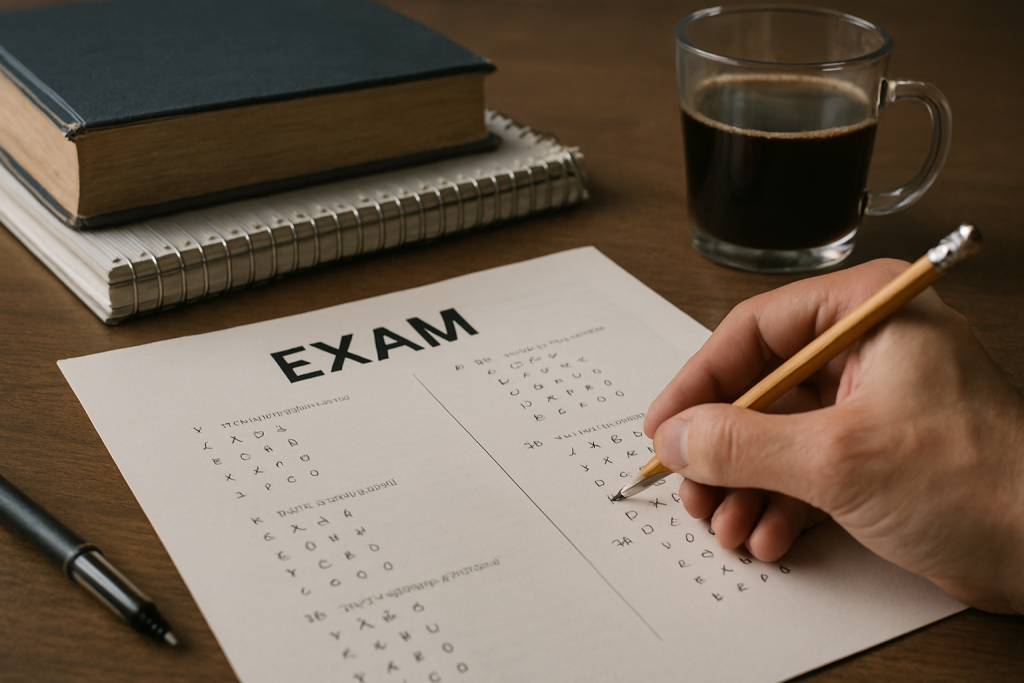So, you think political campaigns are all about charismatic candidates and inspiring speeches? Think again! Behind every successful campaign is a group of dedicated individuals who work tirelessly to ensure victory. In this article, we’ll take you on a journey inside the campaign, where we’ll explore the fascinating world of political campaign staff. From the strategic campaign managers to the tireless field organizers, each member of the team plays a crucial role in shaping the political landscape. We’ll delve into their day-to-day tasks, the skills they bring to the table, and the challenges they face in this fast-paced, high-stakes environment. Get ready to uncover the untold stories of those who work behind the scenes to make it all happen.
Campaign Manager
As a campaign manager, your role is crucial in overseeing and coordinating all aspects of a political campaign. You are responsible for developing and implementing the campaign strategy, managing campaign finance, crafting campaign messaging, and overseeing campaign operations.
The campaign strategy is the blueprint for success. It involves setting goals, identifying target audiences, and determining the best approach to reach and persuade voters. As a campaign manager, you play a key role in shaping this strategy and ensuring its effective execution.
Campaign finance is another critical aspect of your role. You are responsible for managing the campaign budget, fundraising efforts, and compliance with campaign finance laws. It is essential to track and report all campaign contributions and expenditures accurately.
Crafting compelling campaign messaging is vital to connect with voters and convey the candidate’s platform effectively. As a campaign manager, you work closely with the candidate and the communications team to develop persuasive messages that resonate with the target audience.
In addition to strategy, finance, and messaging, you oversee campaign operations. This includes managing staff and volunteers, coordinating events and rallies, and organizing voter outreach efforts. Your role is to ensure that all campaign activities are running smoothly and efficiently.
Communications Director
You frequently collaborate with the campaign manager and play a crucial role as the Communications Director in shaping the candidate’s public image and delivering key messages to voters. As the Communications Director, your responsibilities include managing media relations, developing a messaging strategy, drafting press releases, handling crisis management, and providing public speaking training.
Media relations are a vital aspect of your role. You are responsible for building relationships with journalists, reporters, and media outlets to ensure the candidate’s message is effectively communicated to the public. This involves coordinating interviews, press conferences, and media appearances.
A well-crafted messaging strategy is essential for any political campaign. You work closely with the campaign manager and other staff members to develop a comprehensive plan that aligns with the candidate’s values and resonates with the target audience.
Press releases are an integral part of your job. You are responsible for writing and distributing press releases that highlight the candidate’s achievements, policy positions, and campaign updates. These press releases help shape public perception of the candidate and garner media attention.
Crisis management is another critical aspect of your role. In the event of a crisis or controversy, you must respond swiftly and effectively to mitigate any damage to the candidate’s reputation. This involves crafting clear and concise statements, coordinating with legal advisors, and managing media inquiries.
Lastly, as the Communications Director, you play a crucial role in providing public speaking training to the candidate. You help them refine their message, improve their delivery, and project confidence and credibility during speeches and public appearances.
Fundraising Coordinator
Managing the campaign’s fundraising efforts is a key responsibility of the Fundraising Coordinator. This role involves developing and implementing effective fundraising strategies to generate the necessary financial resources for the campaign. The Fundraising Coordinator plays a crucial role in donor engagement, ensuring that potential and existing donors are informed about the campaign’s mission and goals. They are responsible for maintaining relationships with donors and cultivating new partnerships to secure financial support. The Fundraising Coordinator also contributes to the financial planning of the campaign, working closely with the campaign manager and finance team to set fundraising goals and establish budgets.
In addition to donor engagement and financial planning, the Fundraising Coordinator is responsible for organizing fundraising events. These events provide opportunities for donors to contribute to the campaign while also raising awareness and building community support. The Fundraising Coordinator oversees the planning, logistics, and execution of these events, ensuring their success.
Furthermore, the Fundraising Coordinator plays a vital role in securing grant funding for the campaign. They research and identify potential grant opportunities, prepare and submit grant applications, and manage the reporting requirements for awarded grants.
Volunteer Coordinator
The Volunteer Coordinator plays a crucial role in coordinating and overseeing the recruitment and management of campaign volunteers. As the Volunteer Coordinator, your primary responsibility is to develop effective recruitment strategies to attract a diverse pool of volunteers. This may involve reaching out to community organizations, utilizing social media platforms, and hosting recruitment events. Once volunteers are recruited, you will also be responsible for providing thorough training to ensure they are equipped with the necessary skills and knowledge to contribute effectively to the campaign.
In addition to recruitment, volunteer engagement and retention are also essential aspects of your role. You will need to establish mechanisms for ongoing communication and feedback with volunteers, ensuring that they feel valued and supported. Recognizing the efforts of volunteers is equally important, as it helps to maintain their motivation and commitment. This can be done through public acknowledgments, appreciation events, or small tokens of gratitude.
To excel as a Volunteer Coordinator, you must possess excellent organizational and interpersonal skills. You will need to effectively manage volunteer schedules, delegate tasks, and resolve any conflicts that may arise. Additionally, your ability to build positive relationships with volunteers and create a sense of community within the campaign will contribute to a more productive and satisfying volunteer experience.
Field Organizer
Coordinating and mobilizing volunteers, the Field Organizer plays a crucial role in implementing grassroots campaign strategies. Here are some discussion ideas regarding the responsibilities and tasks of a Field Organizer:
- Voter outreach strategies: The Field Organizer is responsible for developing and executing effective strategies to reach out to voters. This may include door-to-door canvassing, phone banking, and organizing community events.
- Grassroots mobilization tactics: It is the Field Organizer’s duty to mobilize grassroots supporters and engage them in campaign activities. This may involve organizing rallies, town hall meetings, and other events to generate enthusiasm and support for the campaign.
- Community engagement initiatives: The Field Organizer works closely with community leaders, organizations, and activists to build relationships and gain support for the campaign. They may collaborate on community service projects, attend local meetings, and establish a strong presence within the community.
- Canvassing techniques: Field Organizers train volunteers in effective canvassing techniques, such as voter persuasion, data collection, and message delivery. They provide guidance on how to approach voters, address concerns, and gather important information for the campaign.
- Volunteer recruitment methods: The Field Organizer is responsible for recruiting and training a team of dedicated volunteers. They develop recruitment strategies, conduct volunteer orientations, and provide ongoing support and motivation to ensure a strong and committed volunteer base.
The Field Organizer’s role is essential in building grassroots support, mobilizing volunteers, and engaging with the community to achieve campaign objectives.
Digital Strategist
Maximizing online presence and engagement, the Digital Strategist plays a crucial role in developing and implementing effective digital campaign strategies. With the increasing importance of digital marketing in political campaigns, the Digital Strategist is responsible for creating and executing a comprehensive online outreach plan. This involves developing a social media strategy, utilizing data analytics to target specific voter demographics, and managing the campaign website.
The Digital Strategist is responsible for creating and curating engaging content for social media platforms, such as Facebook, Twitter, and Instagram. They analyze data to identify trends and optimize content to maximize reach and engagement. By understanding the target audience, they can tailor the campaign’s messaging and visuals to resonate with voters.
Additionally, the Digital Strategist is responsible for managing the campaign website. They ensure that the website is user-friendly, visually appealing, and provides relevant information about the candidate and their platform. They may also utilize search engine optimization techniques to increase the website’s visibility and drive organic traffic.
Data analytics plays a crucial role in the Digital Strategist’s work. They analyze metrics such as website traffic, social media engagement, and email marketing campaigns to measure the effectiveness of digital strategies. This data-driven approach allows them to make informed decisions and continually optimize the campaign’s online presence.
Researcher
As a Researcher, you play a pivotal role in gathering and analyzing data to inform the campaign’s strategies and decision-making process. Your work involves conducting thorough research on various aspects of the political landscape, including voter demographics, political trends, opinion polls, and campaign strategy. Here are four key responsibilities and tasks that you handle as a Researcher:
- Data Analysis: You are responsible for collecting and analyzing vast amounts of data to identify trends, patterns, and insights that can guide the campaign’s messaging and targeting efforts. This includes analyzing voter demographics to understand the key segments that need to be targeted and developing strategies to reach them effectively.
- Voter Demographics: You delve deep into understanding the demographics of the electorate, including factors such as age, gender, ethnicity, and socioeconomic status. This information helps the campaign tailor its message and outreach to specific voter groups, increasing the chances of resonating with them.
- Political Trends: Staying up-to-date with the latest political trends is crucial for a successful campaign. You monitor and analyze shifts in public opinion, political ideologies, and emerging issues to inform the campaign’s messaging and strategy. This knowledge helps the campaign stay relevant and responsive to the evolving political landscape.
- Opinion Polls: You conduct and analyze opinion polls to gauge public sentiment and measure the campaign’s progress. These polls provide valuable insights into how voters perceive the candidate, the issues that resonate with them, and potential areas for improvement. This data is used to refine the campaign’s messaging and target specific voter groups more effectively.
Event Coordinator
As an Event Coordinator, your role is crucial in ensuring the smooth planning and execution of campaign events. You are responsible for handling all aspects of event logistics, from initial event planning to final event execution. Your main objective is to create and manage successful events that align with the campaign’s goals and engage the target audience effectively.
Event planning involves determining the event objectives, selecting suitable venues, coordinating with vendors and suppliers, and creating event schedules. You will work closely with campaign staff, volunteers, and external stakeholders to ensure that all necessary resources and support are available for the event. Attention to detail is key in coordinating event logistics, such as managing guest lists, organizing transportation, and overseeing audiovisual requirements.
During the event execution phase, you will be responsible for the smooth operation of the event. This includes ensuring that all event activities run according to plan, managing any last-minute changes or issues, and providing on-site support to both the campaign team and attendees. Effective communication and problem-solving skills are essential in coordinating and managing unexpected situations that may arise during the event.




